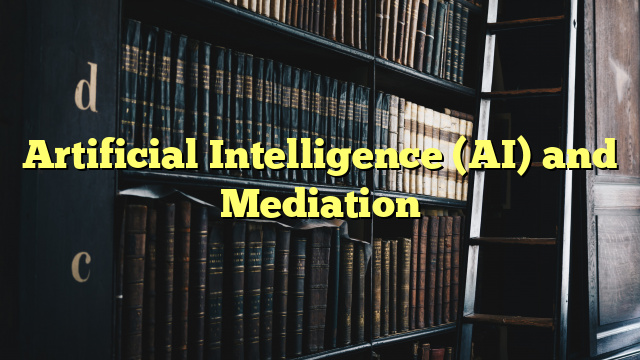Table of Contents
Introduction
Alternative Dispute Resolution (ADR) refers to methods of resolving legal disputes outside of traditional court litigation. These methods, such as mediation and arbitration, aim to provide parties with a quicker, more cost-effective, and less adversarial means of reaching a resolution. With the advancements in technology, Artificial Intelligence (AI) is being increasingly utilized in ADR processes to enhance efficiency and effectiveness.
AI in ADR
AI is used in ADR to streamline and automate various aspects of the dispute resolution process. It can assist in case management, document analysis, data organization, and decision-making. AI algorithms can analyze large volumes of data and identify patterns, trends, and potential outcomes, providing valuable insights to mediators and arbitrators. Additionally, AI-powered chatbots can facilitate communication and provide information to parties involved in the dispute.
Alternative Dispute Resolution Methods
Mediation
Mediation is a voluntary and confidential process in which a neutral third party, the mediator, facilitates communication and negotiation between the disputing parties. The mediator does not impose a decision but helps the parties reach a mutually acceptable resolution.
Arbitration
Arbitration is a more formal ADR method where a neutral third party, the arbitrator, hears the arguments and evidence presented by both parties and makes a binding decision. Arbitration can be either binding or non-binding, depending on the agreement of the parties involved.
Types of ADR
Negotiation
Negotiation is a process in which the parties involved in a dispute attempt to reach a mutually satisfactory agreement through direct communication and compromise. It can be done with or without the assistance of a third party.
Mediation
Mediation, as mentioned earlier, involves the use of a neutral third party to facilitate communication and negotiation between the parties. The mediator helps the parties explore options and find a resolution that meets their interests.
Arbitration
Arbitration, as discussed earlier, involves a third party making a binding decision based on the arguments and evidence presented by the parties. It is a more formal process than mediation and is often used when the parties cannot reach a resolution through negotiation or mediation.
Collaborative Law
Collaborative law is a voluntary process where the parties and their attorneys commit to resolving the dispute through negotiation and cooperation, rather than litigation. It involves a series of meetings where the parties work together to find a mutually acceptable solution.
AI Arbitration
AI arbitration refers to the use of AI technology in the arbitration process. It can involve AI algorithms analyzing evidence, predicting outcomes, and assisting arbitrators in making informed decisions. AI can also be used to automate administrative tasks, such as scheduling and document management, in arbitration proceedings.


AI can provide extra insight into mediation, making it easier.